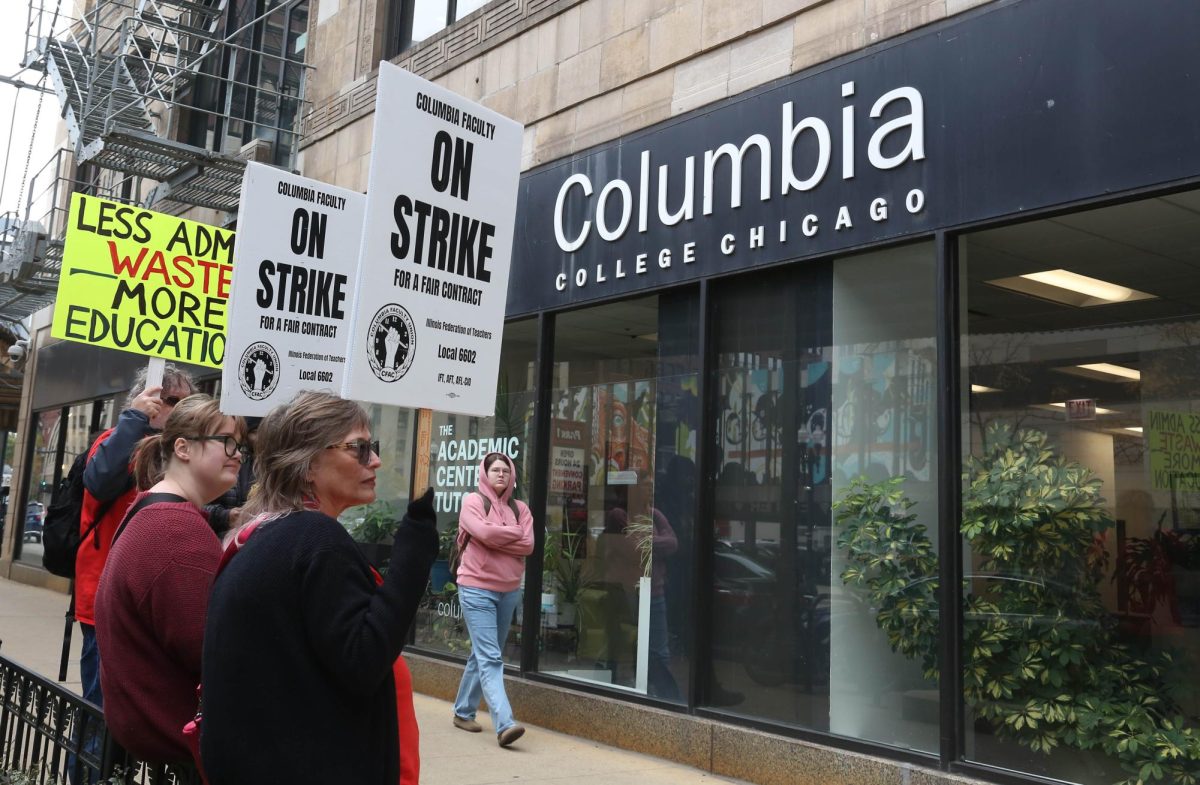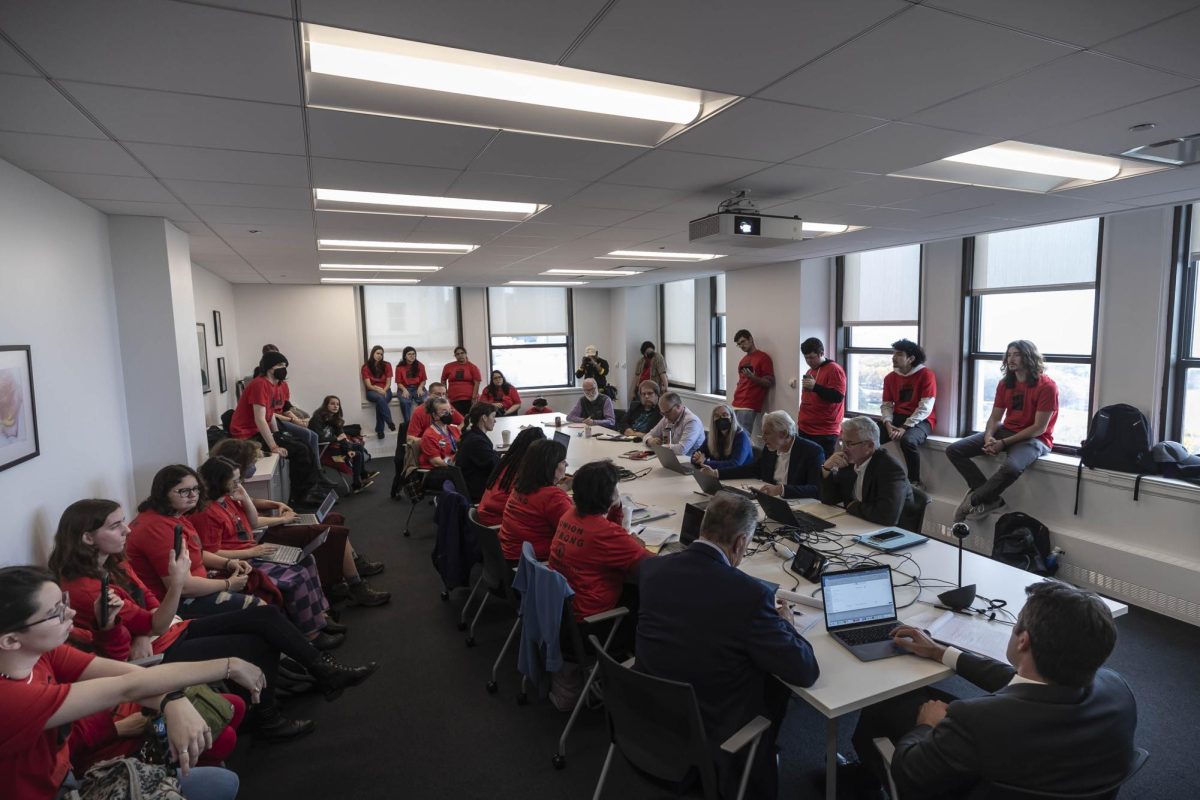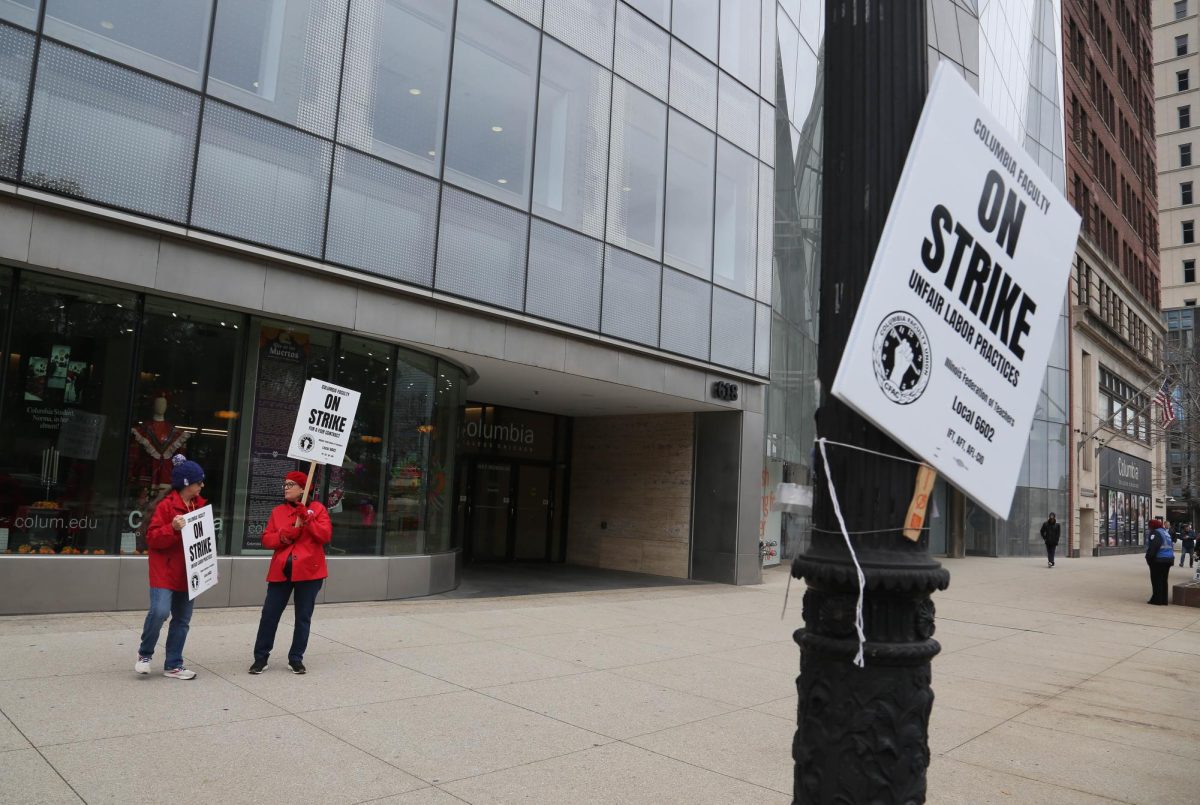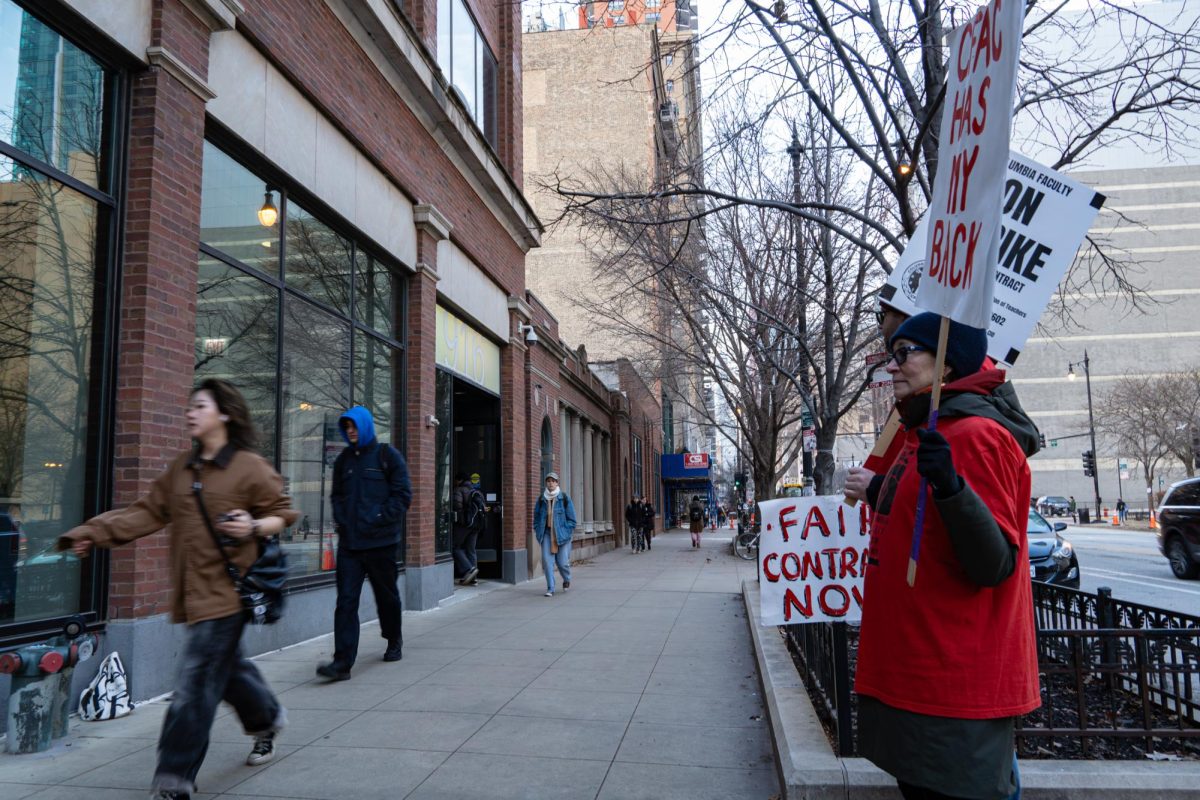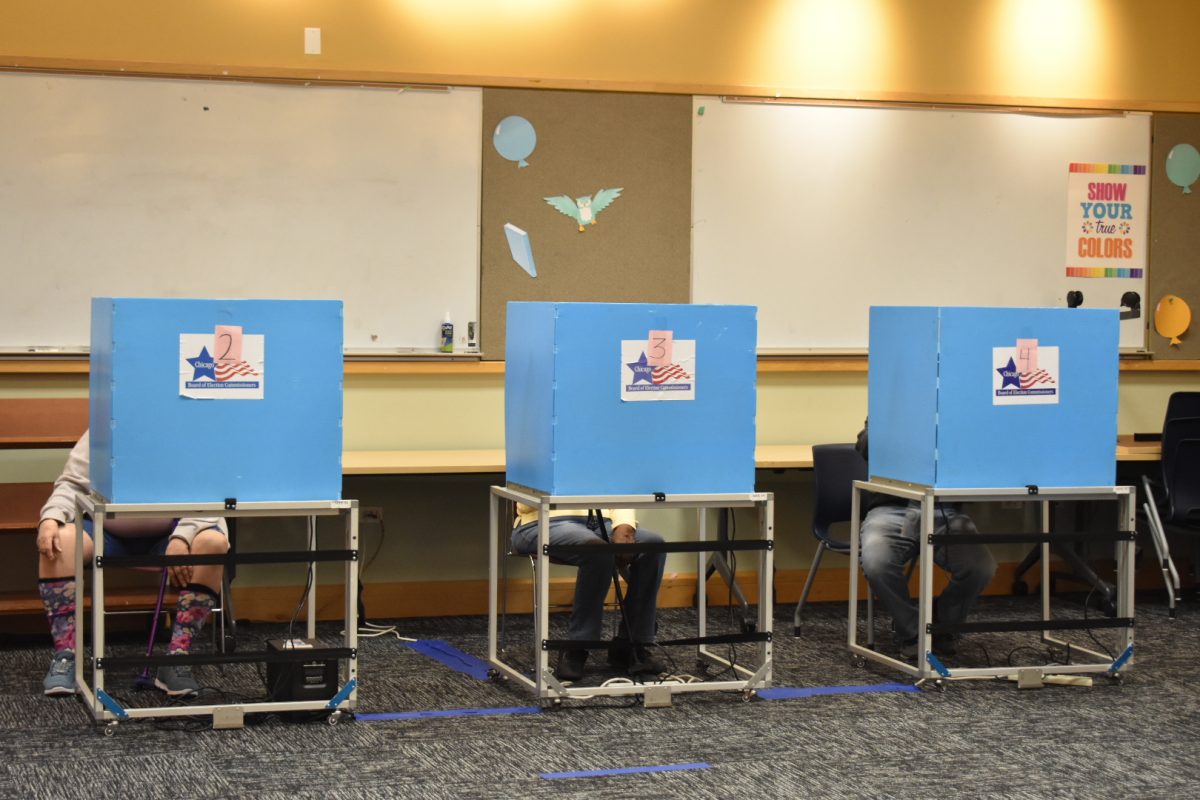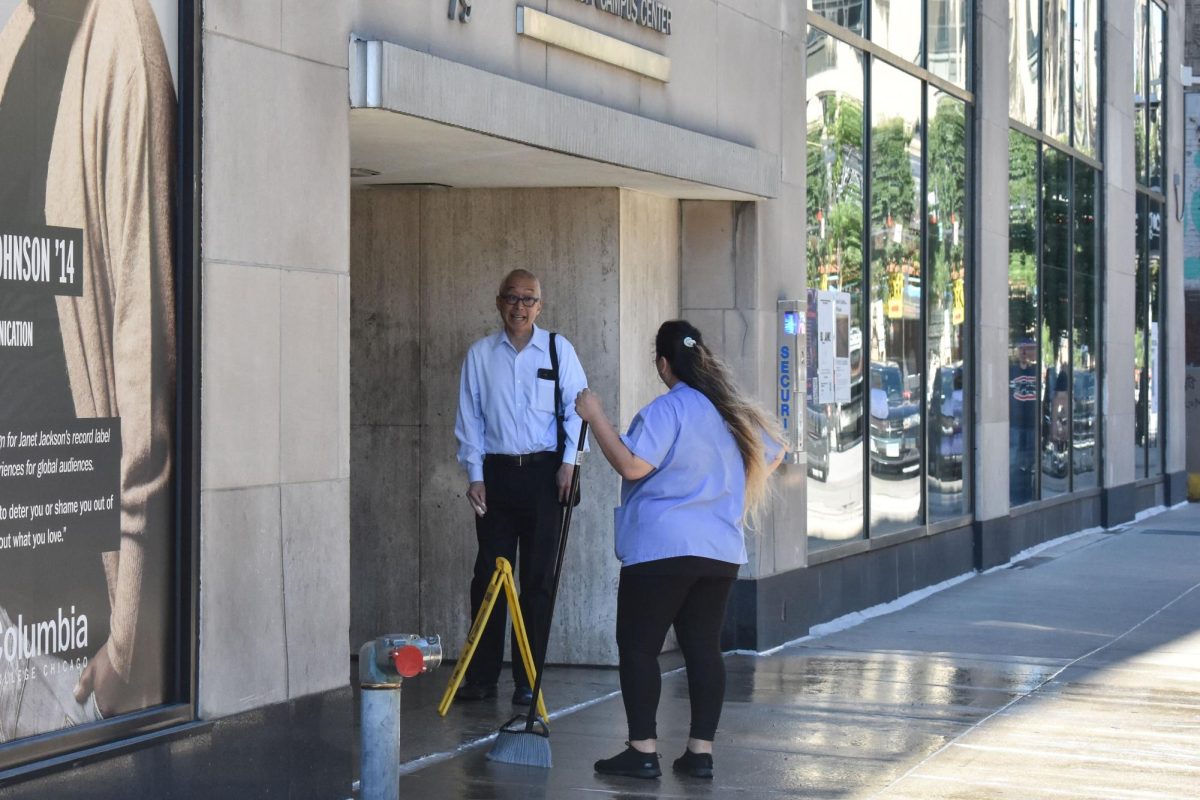The college would restore 30 class sections that aren’t on the Spring 2024 course schedule under a contract offer made to the part-time faculty union, which is heading into its third week on strike.
The union has been out since Oct. 30 over cost-cutting measures the college is taking to address a $20 million deficit – and at the top of their list of complaints are increased class sizes and fewer courses and sections of courses being offered.
They’ve rallied students over those issues, telling them their quality of education will be impacted.
Last week the union released a list of course offerings it said were “cut” in the spring, including 317 sections and 91 courses. The Chronicle did an independent review of the list – which was provided by the college – and found that some sections were cut. But some of the courses the union flagged are running under another name or with a different course code. Others will be running in the fall.
For example, “WCRX Practicum I” is on the list of courses not being offered but is running under a different course number.
The Business and Entrepreneurship Department is not offering “Sponsorship,” “Marketing for Entrepreneurs” and “Sponsorship Practicum” in the spring because the professor qualified to teach them will be on sabbatical.
The Design Department will not be offering as many sections of its web design class because they couldn’t find teachers. The English and Creative Writing Department is not offering “rotational” electives in the spring that are not specifically needed to graduate.
Academic schedulers told the Chronicle that not all courses run every semester or even the same semester each year. They’re offered depending on a variety of factors, including how many students are eligible to take them and whether certain classes need to run because students require them to graduate.
Some courses are no longer being offered because of curriculum changes made by full-time faculty to degree programs. All department curriculum committees have a part-time instructor who is a voting member as stipulated by the bargaining agreement that expired at the end of August.
In an email, Senior Vice President and Provost Marcella David said that popular classes are often full and that the college will continue to make room for students in “key courses.”
She encouraged students to get on a waitlist.
“The waitlist feature helps us identify and make those adjustments in the coming days and weeks before the semester starts,” she said in the email sent on Saturday, Nov. 11.
Some classes on the union’s list may not be offered again until enrollment increases and there are more students to fill all of the course offerings. For example, the Design Department is not offering furniture making in the spring because it is not required in any degree program. The “Furniture Making” course was offered during the Fall 2023 semester with a 18-student course cap, and 17 students took the class.
The offer to the union, which was sent out on Friday, Nov. 10, after a day of bargaining, also included increasing the course cancellation fee paid to part-time faculty to $400 and $700 if the class is canceled less than three weeks before the start of the semester.
Classes are typically canceled when they are offered but do not get enough students in them.
It is not clear if the college returns 30 sections to the course catalog whether they will actually run if they don’t have enough students. Registration for spring courses started on Nov. 6.
The contract offer from the college also included paying a course cancelation fee to part-time faculty who lost sections as a result of the Spring 2024 schedule change, assigning extra courses to the most senior instructors before making assignments to others and guaranteeing a share of course offers to those most senior instructors and providing paid training for faculty teaching “appreciably larger” classes.
The union appeared to reject it.
“Unfortunately, the administration’s current proposal only addresses 2 course sections per department and falls short of safeguarding job security for our part-time faculty, who are those most on the margins. Moreover, the administration’s proposal fails to address any of our concerns related to our students’ quality of education and student learning,” the union said in a statement shared with the Chronicle on Sunday, Nov. 12. “We will persist in offering counter-proposals that comprehensively address these issues, with the hope that the administration will join us at the bargaining table. It is essential to halt any harm to students’ education while ensuring fair treatment for faculty. This administration must stop harming our students while continuing to collect outsized paychecks.”
Lambrini Lukidis, associate vice president of Strategic Communications and External Relations, said the college will not be “expounding on the details of the offer or on bargaining at this time” when asked about the specifics of the 30 sections up for restoration.
On a social media account associated with the union, students and supporters were invited to a Zoom meeting on Sunday night “to learn more as we prepare for another week on strike.”
Outside of classes, the offer includes an increase to part-time faculty compensation by 12% over four years and establishing a free Discount Medical and Wellness Program for part-time faculty and their spouses/domestic partners/dependents, with no requirement for underlying insurance.
Len Strazewski, former interim associate provost who was a member of the college’s bargaining team, said the healthcare included in the offer is “not bad but not great.”
He said the deal would not cover major medical care. “What does it cost teachers and what does it really pay for?” said Strazewski, a retired associate journalism professor and former interim department chair.
What students are saying: Averie Kiesewetter, a junior graphic design major, said they haven’t had issues with registering for classes, but have talked with other students about concerns about getting into the classes they need to graduate and “fun” classes they want to take for elective credits.
“I had no problems, but I know seniors who are worried about not being able to graduate because the required classes aren’t being offered. They are talking to their advisors for exemptions. I have a friend who wants to take print classes. They aren’t required for her degree but are fun and those are the classes that are potentially getting cut. It’s hard for seniors to get into 300/400 level classes because so few people are taking them. Same with people with specialized minors or degrees. It’s hard to get into prerequisites and corequisites that fit into the schedule at a particular time.”
In the Saturday email, the provost said students will be able to graduate on time.
“If it is a required course and you are on the path to graduation, we will work with you to keep you on track,” she wrote in the email. “However we need to make difficult choices about where to direct finite resources, and we have chosen to focus those resources on additional sections of required courses instead of some elective offerings.”
Wyatt Fritts, a junior comedy writing and performance major, said because comedy is a “very specific” major, he has concerns about what to do if he can’t get into the classes he needs.
“You have a very set path and so if those classes fill up, what else do I do?” Fritts said, who came to Columbia as a transfer student with only major-specific classes left to take. “A lot of my friends are in different areas of study … my friends in the art department, their classrooms simply are not big enough to fit more people.”
Additional reporting by Emily Ramirez and Addison Annis.


